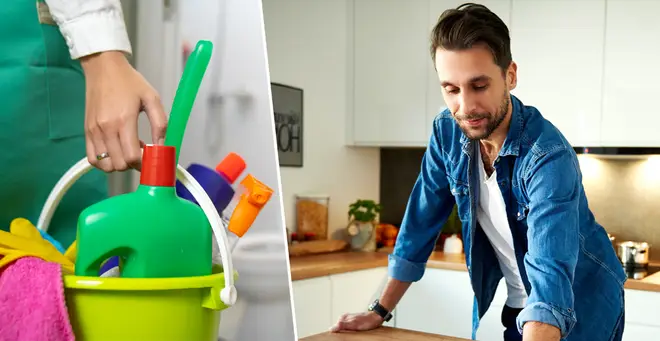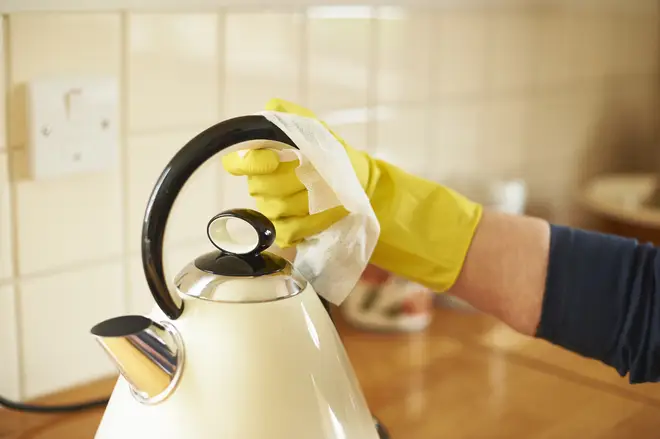Experts warn of ‘high touch’ areas in your home that you should be disinfecting regularly
22 April 2020, 12:01 | Updated: 22 April 2020, 12:12

Some scientists think Coronavirus can live on surfaces for up to three days.
As we all do our best to try and limit the spread of coronavirus, experts have warned that it's more important than ever to disinfect hands, clothes and homes.
But with research showing COVID-19 can live on surfaces for up to three days, there are some 'high touch' areas which should be cleaned even more regularly to help banish germs.
You can find the latest Coronavirus (Covid-19) advice from the NHS here
The kitchen
The first - and maybe the most obvious - is in your kitchen. According to Rodney E. Rohde, program chair for the Clinical Laboratory Science, while most people wipe down the surfaces after every use, appliances and utensils should also be disinfected.
High-touch surfaces - such as coffee makers, kettles, the hob, refrigerators and the sink - should be cleaned with a product that kills 99.9% of germs as they are used so much.

Bringing food in from shops could also potentially introduce germs into your home, which is why some experts suggest wiping down all items before putting them away.
The bathroom
Another obvious one is the family bathroom. As another of the most-used rooms in the house, it should be disinfected habitually.
Rohde told MarthaStewart.com that microbes like E. Coli can grow in the bathroom if it is not cleaned regularly.

‘It’s a no, no!’ Dr Hilary Jones says to avoid napping in the day during lockdown
Handles, switches, and remotes
Areas in the home such as handles, switches and TV remotes are often missed, but are some of the most ‘touched’ in daily life.
According to housekeep.com, these should be cleaned with a ‘two step’ process, consisting of cleaning and disinfecting.
Wiping with soap and water removes germs from the surfaces, while disinfection kills any remaining bacteria.
Use this on things such as door handles, cupboard handles, light switches, TV remotes and stair rails.

Join Heart and applaud our NHS on Thursday at 8pm
Makeup brushes and contact lens' cases
These items come into contact with your face so are extra important.
Rohde told Marthastewart.com: "Make up applicators and contact lens' storage can be reservoirs for microbes that cause skin and eye infections,"
They should also be stored in clean, dry places to limit bacterial growth, Rohde says.
Mobile phones
While you may be washing your hands regularly, there is a risk of contaminating them again with your phone.
Apple advises users to get a 70% isopropyl alcohol wipe as the alcohol quickly evaporates from the surface of your phone and kills all the microbes.
It’s not advised to use Dettol wipes or anything that needs to be left on the surface as this can damage the phone.
You can also just use soap and water. Moisten a cloth with washing-up liquid or hand soap and wipe it over the phone.
Then wipe that off with a cloth or paper towel moistened with water. When all the soap is gone, simply just dry it.
Read Now: When will the hairdressers and salons re-open in the UK after lockdown?

































